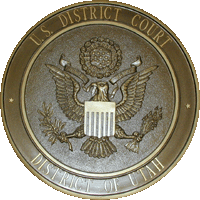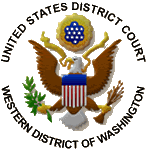Related Research Articles

United States of America v. Microsoft Corporation, 253 F.3d 34, was a landmark American antitrust law case at the United States Court of Appeals for the District of Columbia Circuit. The U.S. government accused Microsoft of illegally monopolizing the web browser market for Windows, primarily through the legal and technical restrictions it put on the abilities of PC manufacturers (OEMs) and users to uninstall Internet Explorer and use other programs such as Netscape and Java.

United Linux was an attempt by a consortium of Linux distributors to create a common base distribution for enterprise use, so as to minimize duplication of engineering effort and form an effective competitor to Red Hat. The founding members of United Linux were SUSE, Turbolinux, Conectiva and Caldera International. The consortium was announced on May 30, 2002. The end of the project was announced on January 22, 2004.

SCO Group, Inc. v. International Business Machines Corp., commonly abbreviated as SCO v. IBM, is a civil lawsuit in the United States District Court of Utah. The SCO Group asserted that there are legal uncertainties regarding the use of the Linux operating system due to alleged violations of IBM's Unix licenses in the development of Linux code at IBM. The lawsuit was filed in 2003, it has lingered on through the bankruptcy of SCO Group and the adverse result in SCO v. Novell, and was reopened for continued litigation by order of a new judge on June 14, 2013. Pursuant to the court order reopening the case, an IBM Motion for Summary Judgment was filed based upon the results of the Novell decision. On December 15, 2014, the judge granted most of IBM's motion, thereby narrowing the scope of the case, which remained open. On March 1, 2016, following a ruling against the last remaining claims, the judge dismissed SCO's suit against IBM with prejudice. SCO filed an appeal later that month. In February 2018, as a result of the appeal and the case being partially remanded to the circuit court, the parties restated their remaining claims and provided a plan to move toward final judgement. In 2021, the case finally ended in a settlement.

Step-Saver Data Systems, Inc. v. Wyse Technology was a case in the U.S. Court of Appeals for the Third Circuit primarily concerned with the enforceability of box-top licenses and end user license agreements (EULA) and their place in U.S. contract law. During the relevant period, Step-Saver Data Systems was a value-added reseller, combining hardware and software from different vendors to offer a fully functioning computer system to various end users. Step-Saver's products included software produced by Software Link, Inc (TSL), computer terminals produced by Wyse Technology, and main computers produced by IBM. The fundamental question raised in this case was whether the shrinkwrap licenses accompanying TSL's software were legally binding, given that different terms were negotiated over the phone with Step-Saver prior to receiving physical copies of the software. The case was first heard in the United States District Court for the Eastern District of Pennsylvania, where the court ruled that the shrinkwrap licenses were legally binding. However, the U.S. Court of Appeals for the Third Circuit subsequently reversed this decision, ruling that the shrinkwrap licenses were not legally binding.

Groklaw was a website that covered legal news of interest to the free and open source software community. Started as a law blog on May 16, 2003, by paralegal Pamela Jones ("PJ"), it covered issues such as the SCO-Linux lawsuits, the EU antitrust case against Microsoft, and the standardization of Office Open XML.
In a series of legal disputes between SCO Group and Linux vendors and users, SCO alleged that its license agreements with IBM meant that source code IBM wrote and donated to be incorporated into Linux was added in violation of SCO's contractual rights. Members of the Linux community disagreed with SCO's claims; IBM, Novell, and Red Hat filed claims against SCO.

SCO v. Novell was a United States lawsuit in which the software company The SCO Group (SCO), claimed ownership of the source code for the Unix operating system. SCO sought to have the court declare that SCO owned the rights to the Unix code, including the copyrights, and that Novell had committed slander of title by asserting a rival claim to ownership of the Unix copyrights. Separately, SCO was attempting to collect license fees from Linux end-users for Unix code through their SCOsource division, and Novell's rival ownership claim was a direct challenge to this initiative. Novell had been increasing their investments in and support of Linux at this time, and was opposed to SCO's attempts to collect license fees from Novell's potential customers.
Beginning in 2003, The SCO Group was involved in a dispute with various Linux vendors and users. SCO initiated a series of lawsuits, the most known of which were SCO v. IBM and SCO v. Novell, that had implications upon the futures of both Linux and Unix. SCO claimed that Linux violated some of SCO's intellectual properties. Many industry observers were skeptical of SCO's claims, and they were strongly contested by SCO's opponents in the lawsuits, some of which launched counter-claims. By 2011, the lawsuits fully related to Linux had been lost by SCO or rendered moot and SCO had gone into bankruptcy. However the SCO v. IBM suit continued for another decade, as it included contractual disputes related to both companies' involvement in Project Monterey in addition Linux-related claims. Finally in 2021 a settlement was reached in which IBM paid the bankruptcy trustee representing what remained of SCO the sum of $14.25 million.

The Software Freedom Law Center (SFLC) is an organization that provides pro bono legal representation and related services to not-for-profit developers of free software/open source software. It was launched in February 2005 with Eben Moglen as chairman. Initial funding of US$4 million was pledged by Open Source Development Labs.
The multinational technology corporation Apple Inc. has been a participant in various legal proceedings and claims since it began operation and, like its competitors and peers, engages in litigation in its normal course of business for a variety of reasons. In particular, Apple is known for and promotes itself as actively and aggressively enforcing its intellectual property interests. From the 1980s to the present, Apple has been plaintiff or defendant in civil actions in the United States and other countries. Some of these actions have determined significant case law for the information technology industry and many have captured the attention of the public and media. Apple's litigation generally involves intellectual property disputes, but the company has also been a party in lawsuits that include antitrust claims, consumer actions, commercial unfair trade practice suits, defamation claims, and corporate espionage, among other matters.
Opposition to software patents is widespread in the free software community. In response, various mechanisms have been tried to defuse the perceived problem.
Linux began in 1991 as a personal project by Finnish student Linus Torvalds to create a new free operating system kernel. The resulting Linux kernel has been marked by constant growth throughout its history. Since the initial release of its source code in 1991, it has grown from a small number of C files under a license prohibiting commercial distribution to the 4.15 version in 2018 with more than 23.3 million lines of source code, not counting comments, under the GNU General Public License v2 with a syscall exception meaning anything that uses the kernel via system calls are not subject to the GNU GPL.
Microsoft has been involved in numerous high-profile legal matters that involved litigation over the history of the company, including cases against the United States, the European Union, and competitors.

A free-software license is a notice that grants the recipient of a piece of software extensive rights to modify and redistribute that software. These actions are usually prohibited by copyright law, but the rights-holder of a piece of software can remove these restrictions by accompanying the software with a software license which grants the recipient these rights. Software using such a license is free software as conferred by the copyright holder. Free-software licenses are applied to software in source code and also binary object-code form, as the copyright law recognizes both forms.

The GNU General Public Licenses are a series of widely used free software licenses, or copyleft licenses, that guarantee end users the freedoms to run, study, share, or modify the software. The GPL was the first copyleft license available for general use. It was originally written by Richard Stallman, the founder of the Free Software Foundation (FSF), for the GNU Project. The license grants the recipients of a computer program the rights of the Free Software Definition. The licenses in the GPL series are all copyleft licenses, which means that any derivative work must be distributed under the same or equivalent license terms. It is more restrictive than the Lesser General Public License, and even further distinct from the more widely used permissive software licenses such as BSD, MIT, and Apache.
The Free Software Foundation (FSF) is a 501(c)(3) non-profit organization founded by Richard Stallman on October 4, 1985. The organisation supports the free software movement, with the organization's preference for software being distributed under copyleft terms, such as with its own GNU General Public License. The FSF was incorporated in Boston where it is also based.
Fear, uncertainty, and doubt (FUD) is a manipulative propaganda tactic used in sales, marketing, public relations, politics, polling, and cults. FUD is generally a strategy to influence perception by disseminating negative and dubious or false information, and is a manifestation of the appeal to fear.

Vernor v. Autodesk, Inc. was a case in the United States District Court for the Western District of Washington regarding the applicability of the first-sale doctrine to software sold under the terms of so-called "shrinkwrap licensing." The court held that when the transfer of software to the purchaser materially resembled a sale it was, in fact, a "sale with restrictions on use" giving rise to a right to resell the copy under the first-sale doctrine. As such, Autodesk could not pursue an action for copyright infringement against Vernor, who sought to resell used versions of its software on eBay. The decision was appealed to the United States Court of Appeals for the Ninth Circuit, which issued a decision on September 10, 2010, reversing the first-sale doctrine ruling and remanding for further proceedings on the misuse of copyright claim. The Ninth Circuit's decision asserted that its ruling was compelled by Ninth Circuit precedent, but observed that the policy considerations involved in the case might affect motion pictures and libraries as well as sales of used software.
Apple Inc. v. Pepper, 587 U.S. ___ (2019), was a United States Supreme Court case related to antitrust laws related to third-party resellers. The case centers on Apple Inc.'s App Store, and whether consumers of apps offered through the store have Article III standing under federal antitrust laws to bring a class-action antitrust lawsuit against Apple for practices it uses to regulate the App Store. The case centers on the applicability of the "Illinois Brick doctrine" established by the Supreme Court in 1977 via Illinois Brick Co. v. Illinois, which determined that indirect consumers of products lack Article III standing to bring antitrust charges against producers of those products. In its 5–4 decision, the Supreme Court ruled that since consumers purchased apps directly through Apple, that they have standing under Illinois Brick to seek antitrust charges against Apple.
Open source license litigation involves lawsuits surrounding open-source licensed software. Many of the legal rights of open source software licensors enforceable against users violating licensing agreements are untested by the U.S. legal system. Free and open source software (FOSS) is distributed under a variety of free-software licenses, which are unique among other software licenses. Legal action against open source licenses involves questions about their validity and enforceability.
References
- 1 2 Wallace v. International Business Machines Corp., 467F.3d1104 (7th Cir.2006).
- ↑ Eric J. Sinrod (November 22, 2006). "How GPL fits in with the future of antitrust regulation". News.com. Retrieved May 31, 2013.
- ↑ "Case 1:05-cv-00618-JDT-TAB Document 1" (PDF).
- ↑ "Case 1:05-cv-00618-JDT-TAB Document 30" (PDF).
- ↑ "Case 1:05-cv-00618-JDT-TAB Document 41" (PDF).
- ↑ "Case 1:05-cv-00618-JDT-TAB Document 42" (PDF).
- ↑ Peter Brown (2006). "The GPL tested in US courts - Wallace Vs FSF". Free Software Foundation. Retrieved May 21, 2006.
- ↑ Anne Broache (2006). "Open Source Earns Legal Victory". Archived from the original on January 19, 2013. Retrieved November 12, 2006.